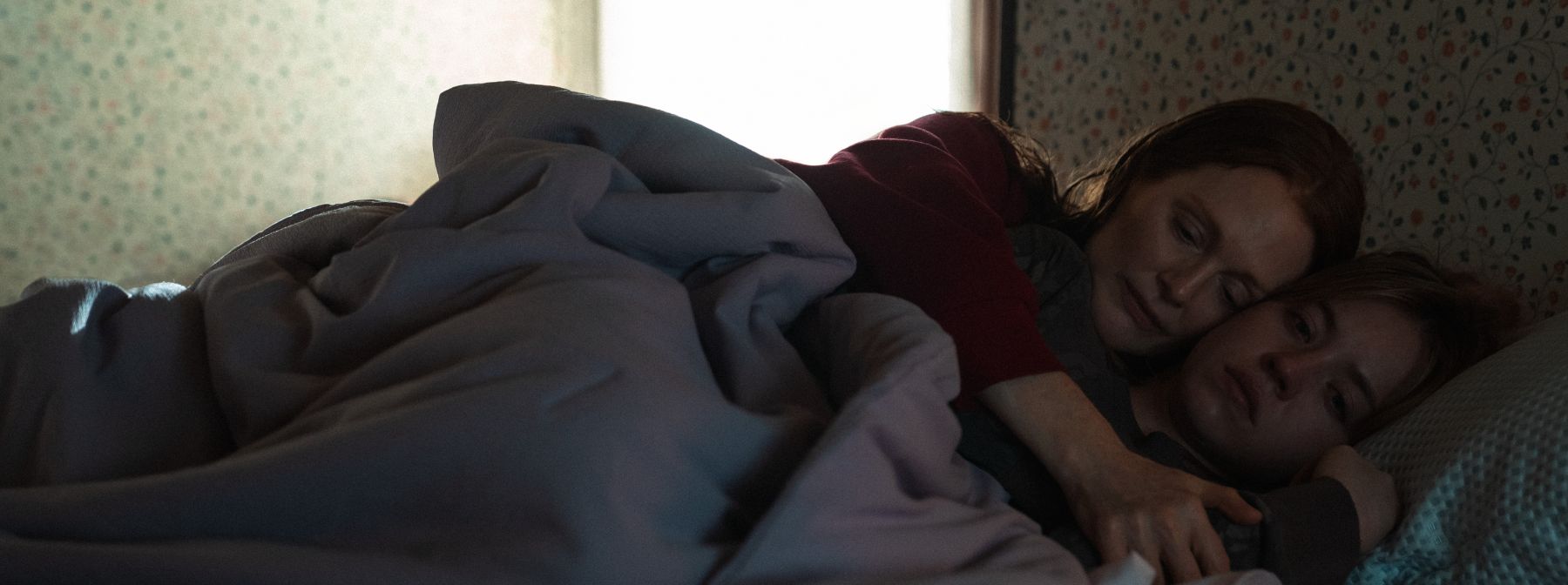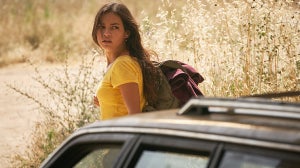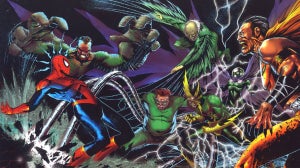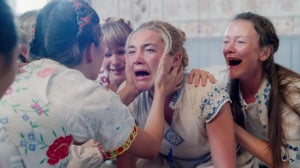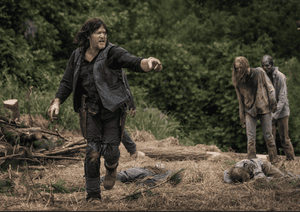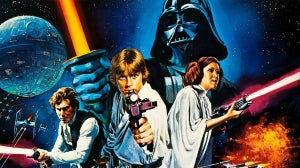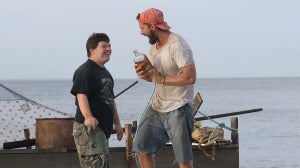
“My aunt actually owns the Echo Valley farm in Westchester – she didn’t come from any money, but she somehow stumbled into owning horses and got the chance to buy more after getting married”, he told Zavvi. “I see Kate, Julianne Moore’s character, as being from a similarly, decisively lower middle-class background, which I think is key to the resilience she’s able to mine as the horror unfolds around her.
“If I could write all my scripts in Delaware County, I would, but I’d always been interested in setting a thriller on a farm after visiting my aunt in Echo Valley. When I experienced the solitude and isolation of that place whilst walking around there, I knew it’d be an interesting place to strand a character so she’d have nowhere to turn when the screws are tightened on her.”
Both Inglesby and director Michael Pearce have asked me to remain coy about what happens when those screws tighten, but I can say it all begins when Kate’s daughter Claire (Sydney Sweeney) returns home after a long absence, covered in blood. She’s fled from the home of a deadbeat boyfriend, throwing his clothes out of his apartment window in retaliation, not knowing that his pockets contained something very important to the menacing Jackie (Domhnall Gleeson).
Claire only ever returns home when she wants money, which she uses to fund her drug addiction; still reeling after the death of her wife which has forced her to close the stables, Kate is facing closure, with very little left to her name. When Jackie shows up demanding money to cover his losses, she’s forced to wonder how far she’ll go to protect a daughter her ex-husband (Kyle MacLachlan) has all but declared a lost cause.
Inglesby may draw from formative experiences when it comes to establishing settings and characters, but the most harrowing aspects of every story he tells is drawn from his own anxieties as a parent. As he half-jokes, as a writer and a parent, a new thing to get anxious about will always be right around the corner.
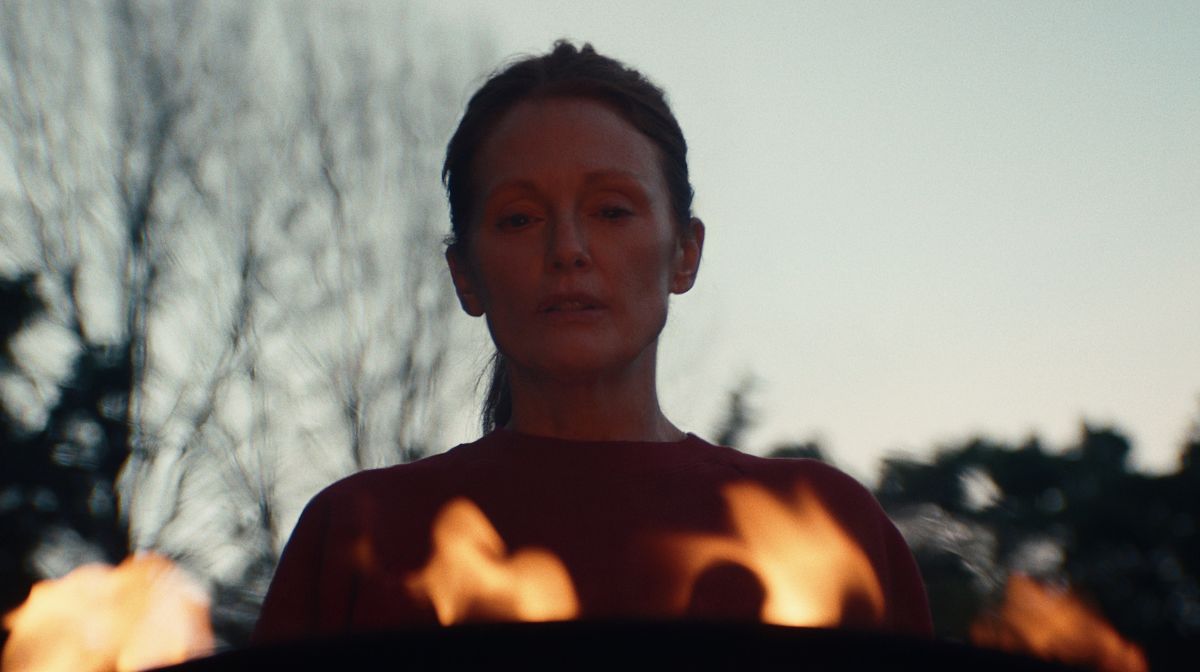
“If you look back at all the things I’ve written recently, they all deal with losing a child in some way; I want to confront my anxieties and fears by writing them away. As a parent, the fear of that grief is ever-present, always hovering around you somewhere – writing about it is my own kind of therapy.”
The screenwriter believes the hardest part about writing any script is separating his own feelings as a parent from those of his characters.
“It’s hard to be neutral when dealing with material like this, but you want to invite the audience into the ambiguity of the character’s actions, to bring their own backgrounds and family dynamics into how they interpret a story like this. Their families may be different, but everyone can relate to some relationship within the story, which I think is a comfortable place to start from, you want people to recognise something from their own life even if they haven’t experienced anything close to it.”
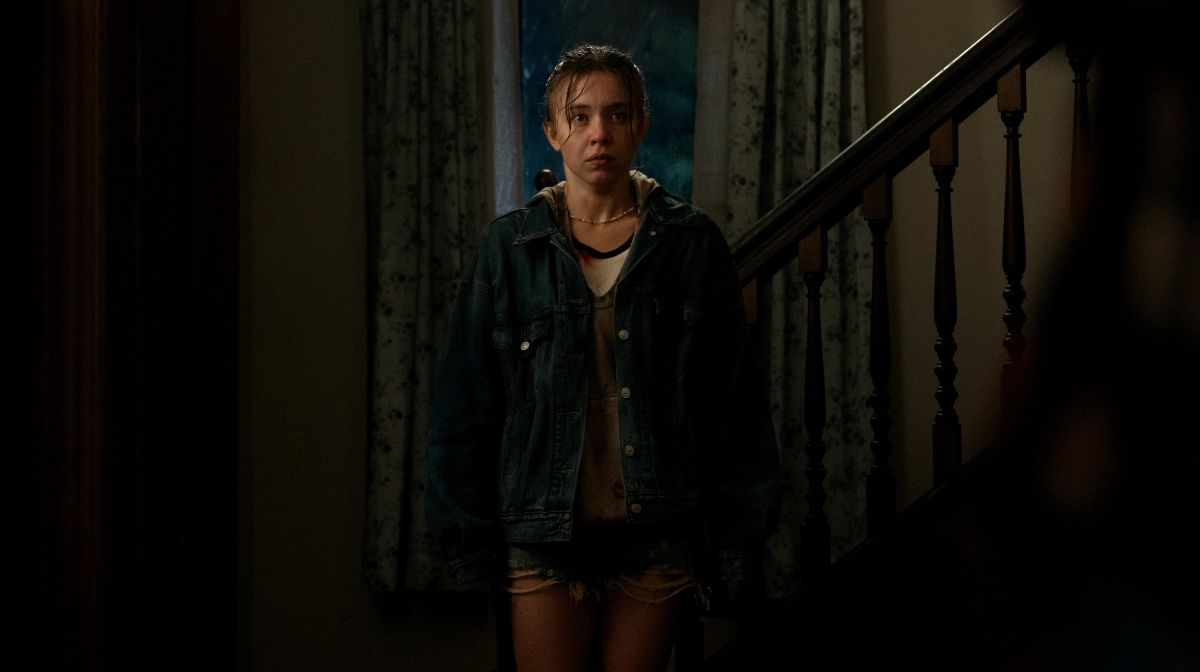
This script is very explicitly about the fear of losing a child to drug addiction, and whilst that spirals into a twisty thriller after the first act, Inglesby knew it needed to ground the drama enough for an audience to buy into each heightened narrative left turn.
“I’ve been lucky enough to gather a bunch of advisors throughout my career, from therapists and psychologists to FBI agents and police chiefs – my research on each project, from the films to the HBO series, begins with me sending them a ton of questions! I try to draw from as many of the anecdotes they tell me as I can, although this wasn’t in terms of developing Sydney’s character so much as to specify how addiction impacts a family in a way that felt as honest as possible.
“There’s a scene where she tries to steal the family dog, which I think is the best in the film. She’s truly amazing in this.”
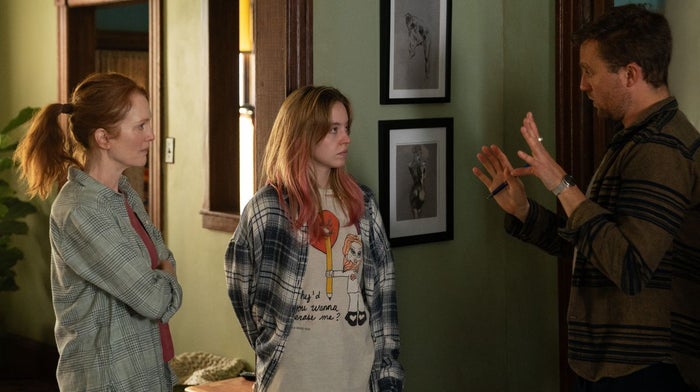
Julianne Moore has said that she hopes the film causes a debate amongst parents who see it, as she believes the juiciest aspect is the theme of unconditional love and how far a mother will go for their child. Inglesby echoes this, stressing that testing the limits of the parent/child relationship where what he wanted to explore, an emotion which is “fertile soil” for a morally knotty thriller.
Director Michael Pearce has seen those intense audience reactions first hand, and he told Zavvi that witnessing his work inspire heated debates is the most fulfilled he feels as a filmmaker.
“I love it when a film tortures me even after leaving the cinema, causing me to debate with my friends on our different interpretations of what a character should or shouldn’t have done. We screened Echo Valley a few nights ago in New York, and there were two women who had daughters that were a similar age to Sydney’s character, and one of them gave me a strong opinion on why they wouldn’t have done with Julianne’s character does for her – and the other was shocked that she wouldn’t go that far for her child.
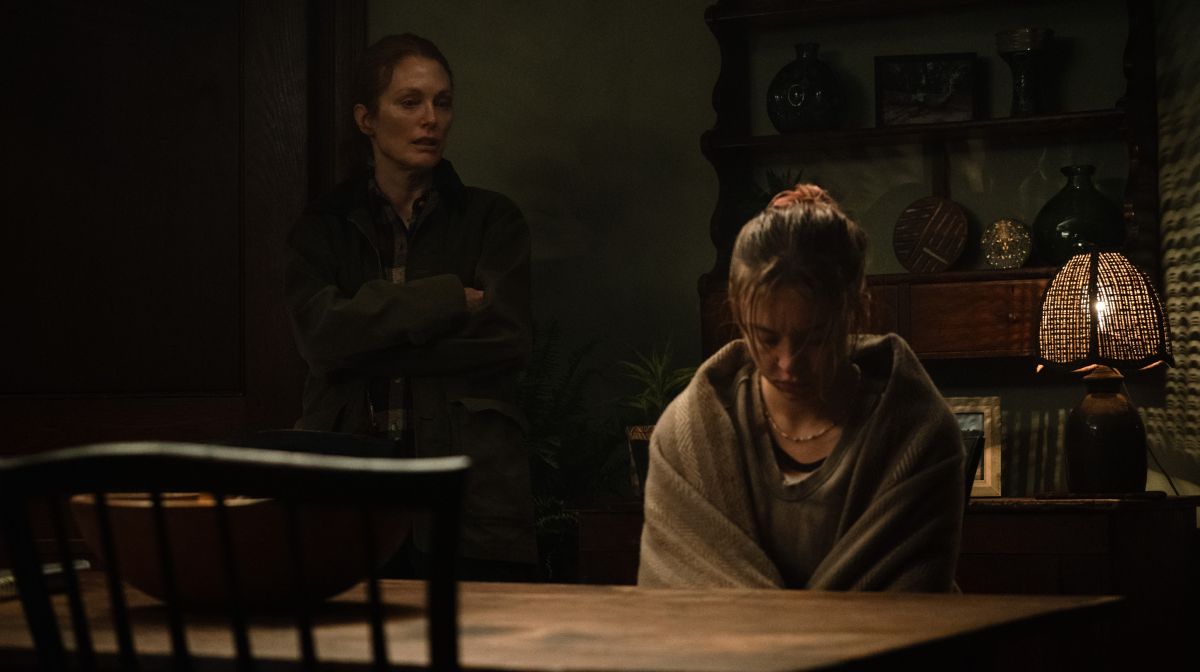
“They very quickly moved on from me to start debating amongst themselves, which I think is great. I love giving an audience room to wrestle with the themes, and this is left open ended as to how good that was for the sake of that mother-daughter relationship.”
This is Pearce’s third film, after BAFTA-winning debut Beast – which gave Jessie Buckley her breakout role – and the Riz Ahmed-starring paranoid Sci-Fi Encounter, both of which had devastating, traumatic family dynamics at their core. Ask him why he’s drawn to these stories, however, and he’ll quickly point towards his subconscious instead of his formative experiences.
“I had a very happy childhood, with none of the dysfunctional relationships I’ve portrayed in my films. But I do have vague memories of going to friends’ homes and seeing their relationships with their parents, which didn’t feel warm – I always found it frightening that someone’s home could be the place they felt least comfortable in, and that some even appeared afraid of their parents.
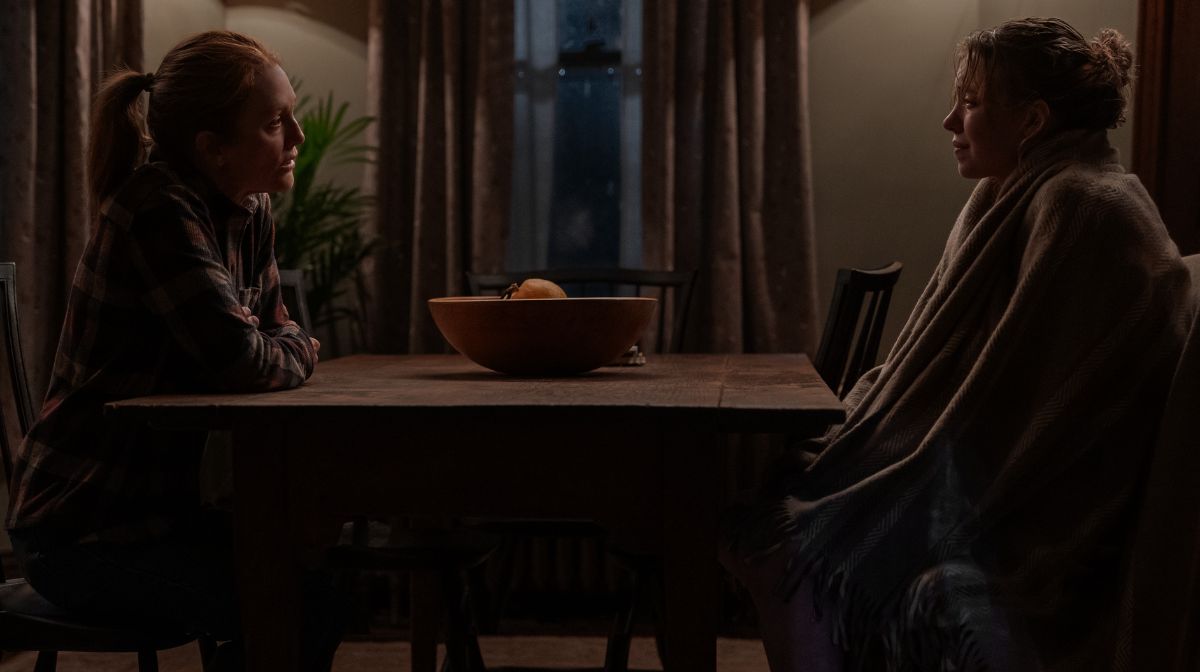
“As I’ve gotten older, I’ve realised it’s most tragic when the people closest to you can be the cruellest to you. Your bound forever to your family, you can’t escape that relationship, and so you’ll always be vulnerable to attack and to be wounded – it's a conflict that is my biggest personal obsession as a storyteller.
“When reading Brad’s script, I felt that he’d found an entertaining way to explore those themes. I was in the hands of a great storyteller with all these surprises up his sleeve, and didn’t feel like I had seen it before or knew where it was going – and underneath that, this strange mother-daughter dynamic made for a twisted relationship that resonated on another level.”
Sweeney was one of the first actors who signed on for the production, and Pearce spent a significant part of those early stages collating interviews with people suffering from drug addiction to help inspire her.
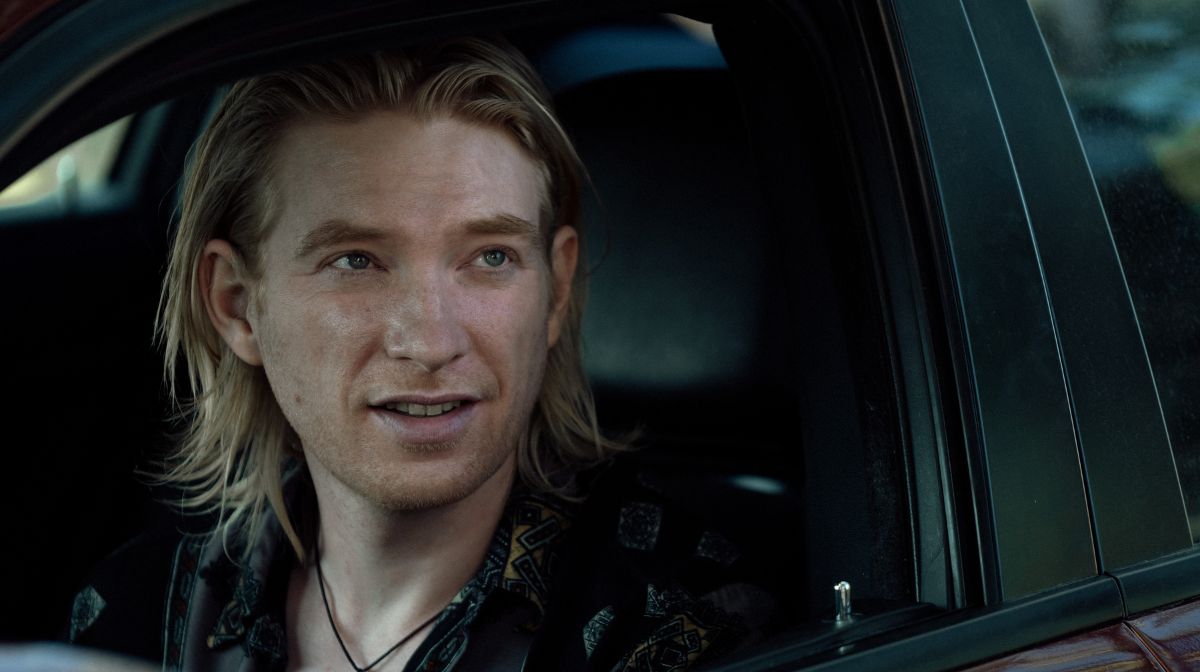
“What I found interesting about many of the videos I found of interviews with homeless drug addicts in LA was that they were unedited and often an hour long, all told in one shot. It was raw and devoid of the editorialising or moralising you’ll find in most documentaries, showing how people of various socioeconomic backgrounds became affected by addiction; there was no one type of addict, and I gave these to Sydney for her to extrapolate.
“I know she always builds backstories for her characters by writing journal entries from their perspectives, so I gave her these authentic portrayals to build the groundwork up from.”
As for the most harrowing parts of the thriller itself, Ingleby is prepared to get hate mail, something he already has experience of after Mare Of Easttown killed off a fan favourite character.
“There was another scene in that where a kid was floating face down in a bathtub that people still give me grief over, even though we didn’t kill him! Without saying too much, here we do prey on the sympathy audiences have for animals, to show just how cold Jackie could be – if it’s hard to watch, that’s good, we want your hatred to rise by a couple of notches in those moments!”
Echo Valley is released on AppleTV+ and in select cinemas from Friday, 13th June.
